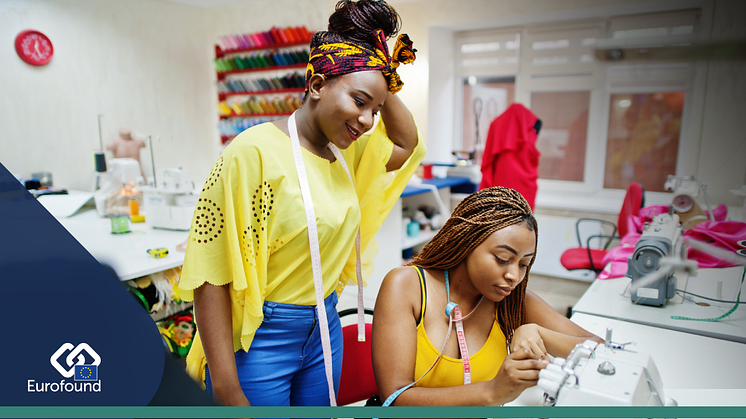EU research shows COVID-19 poised to end progress on gender equality
The social and economic impacts of the COVID-19 crisis threaten to roll back recent progress in gender equality, including an overall trend of upward convergence.
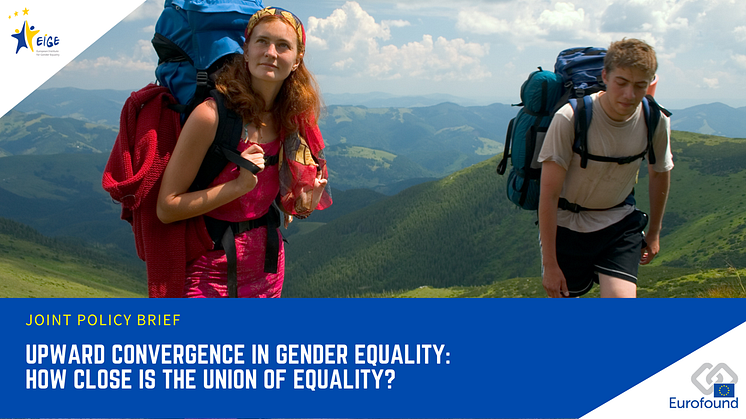
The social and economic impacts of the COVID-19 crisis threaten to roll back recent progress in gender equality, including an overall trend of upward convergence.

Fewer than 50% of people in France are likely to take the COVID-19 vaccination, according to Eurofound’s large-scale Living, working and COVID-19 online survey. In February and March 2021, just 48.7% replied that they were likely or very likely to get vaccinated against the COVID-19 virus when it becomes available to them. This is considerably lower than the EU average at 64.4%.

As we leave behind the lockdowns and business disruptions of COVID-19 and enter a ‘new normal’, it is time to talk about how workplaces might be transformed to drive innovation.

Slovenians have fared comparatively well in terms of mental health during the COVID-19 pandemic compared to their EU counterparts standing at 53.2 on a scale of 100, behind only Denmark and Finland. According to Eurofound’s large-scale Living, working and COVID-19 online survey, the EU average was 45.3 in spring 2021.

74% of people in Croatia report difficulties making ends meet, according to Eurofound’s large-scale Living, working and COVID-19 online survey. This is the highest figure among EU Member States, where the average was 45.1%. For Croatia, this number remained consistently high throughout the pandemic at 73.5% in April 2020 reporting a difficult personal financial situation.

The financial situation of people in Luxembourg is significantly better than the EU average with 11.3% of respondents reporting difficulties in making ends meet in February and March 2021, according to Eurofound’s large-scale Living, working and COVID-19 online survey. This is the third lowest figure among EU Member States with the EU average at 23.6%, just behind Denmark and Sweden.

Are there any lessons to be learnt about the factors that helped some organisations to navigate through the crisis more smoothly than others?

Decision-makers approached minimum wage setting for 2021 cautiously due to the economic uncertainty caused by the pandemic. Despite this, nominal statutory minimum wages rose in most Member States and the UK, although at lower rates than in recent years.

Throughout the COVID-19 pandemic, trust of people in Sweden in their national government has declined from 6.4 to 5.1. Respondents rated their trust levels at the onset of the pandemic (data collection April 2020) at 6.4 on average, which decreased to 5.5 during the summer months of last year and then to 5.1 in February and March of this year.
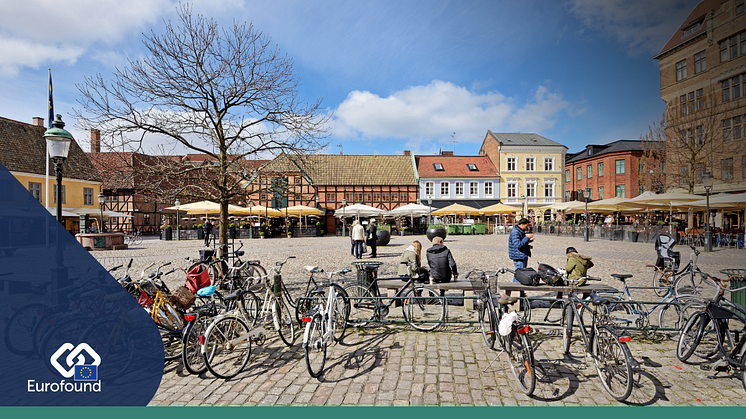
Trust in the national government in Denmark ranked highest among EU countries at 7 out of 10, according to Eurofound’s large-scale Living, working and COVID-19 online survey. This marked an increase of 0.5 points compared to the summer of last year. This pattern goes against the trend observed in all other EU Member States, where the average trust rating fell to just 3.9 from 4.6.

Pessimism about one’s future financial situation has decreased in Italy compared to summer 2020, according to Eurofound’s large-scale Living, working and COVID-19 online survey. In February 2021, over one fifth (22.5%) of people in Italy expected a worsening of their situation compared to 27.6% in June/July of last year.

Now that the pandemic is receding and wholesale telework seems to be here to stay, governments are faced with the need to properly regulate such arrangements. Member States are following different paths, but the EU might step in to promote some level of standardisation.
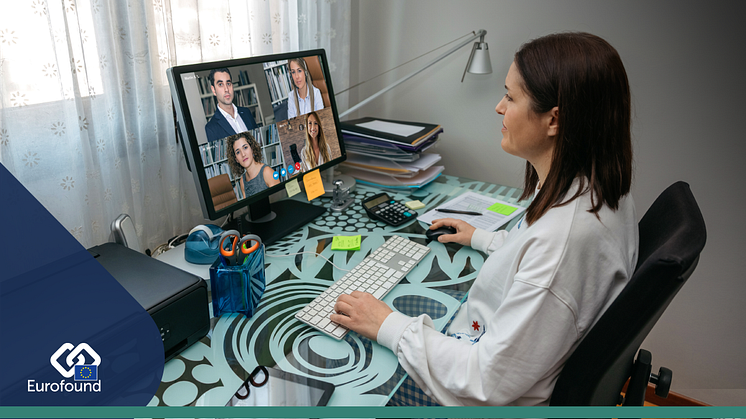
Eurofound Research Managers Tina Weber and Oscar Vargas will explore developments in teleworking in Europe and present latest data at a LIVE #AskTheExpert webinar on Thursday 3 June 2021 at 10:00 – 11:00 IST/11:00 – 12:00 CEST.

Over a quarter (27%) of adults in the EU are vaccine hesitant, with 29% of men and 25% of women indicating that they were either ‘very unlikely’ or ‘rather unlikely’ to take the COVID-19 vaccine in Eurofound’s large-scale Living, working and COVID-19 online survey.
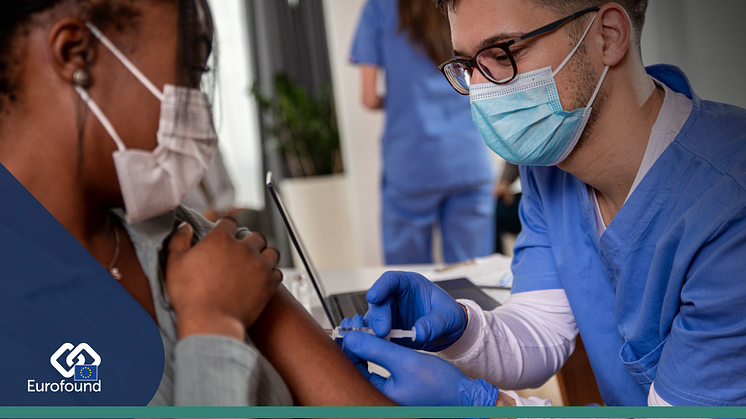
On 9 May, the Conference on the Future of Europe will get underway. Floated well before the COVID-19 outbreak, its timing in the wake of the seismic shifts precipitated by the pandemic, and its implementation alongside the European Pillar of Social Rights Action Plan, means that the outcomes could be far-reaching.
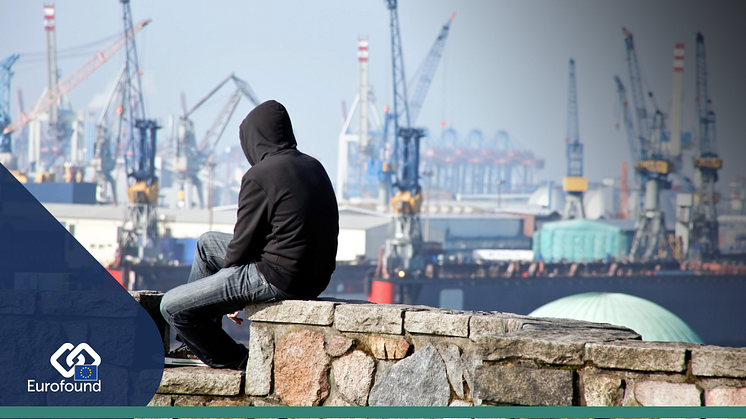
The COVID-19 pandemic is having negative and far-reaching consequences on labour market participation and social inclusion, which may further disadvantage people with disabilities.
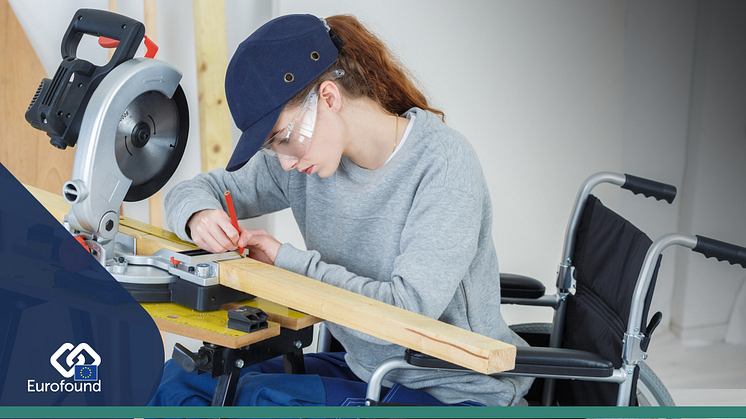
There were 5.7 million fewer people in employment in the EU by spring 2020 than at the end of 2019, and 6.3 million fewer compared with the trend growth that could have been expected before the COVID-19 pandemic.

Eurofound’s new policy brief on ‘Education, healthcare and housing - How access changed for children and families in 2020’ focuses on the aspects of accessibility for children and families for which Eurofound has data and highlights differences in accessibility before and during the COVID-19 pandemic.

This year’s theme to mark International Women’s Day on 8 March is Choose to Challenge (or #ChooseToChallenge, if you prefer). The idea is to highlight that ‘from challenge comes change’ and that ‘we can all choose to challenge and call out gender bias and inequality’.

Europe saw two decades of improvement in working conditions in a multitude of areas prior to COVID-19. However, progress in a number of areas, such as gender pay gaps, gender segregation in labour markets, psychosocial risks, and work intensity, were fragile and advancements over 20 years now risk being diluted in less than 20 months.
